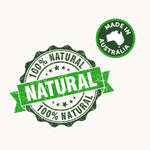
Do Dogs Need Vegetables in Their Diet?
Many dog owners wonder: do dogs actually need vegetables in their diet? The debate is ongoing. Some believe dogs should eat mostly meat, while others support adding vegetables for balance. The truth sits somewhere in the middle.
This query sparks curiosity among dog owners who are keen on understanding the intricacies of their furry companions' nutritional needs. The debate surrounding this topic is deep, with opinions varying widely. Some advocate for a diet predominantly composed of meat and animal-based products, while others argue for the inclusion of vegetables to ensure a well-rounded nutritional profile for dogs.
If we look back long ago before humans developed kibble, dogs ate their food in the wild. They ate other animals which we all know consist which meant their diet primarily consisted of prey, rich in of protein, fats, bones, and offal. However, what often escapes our attention is the fact that these prey animals also consumed vegetable matter as part of their diet. Consequently, dogs indirectly consumed vegetables through the stomach contents of their prey, highlighting the historical inclusion of plant matter in their diet. This raises the question: do dogs really need vegetables in their diet?
What Are The Benefits Of Vegetables For Dogs?
The incorporation of vegetables into a dog's diet offers a plethora of health benefits. These nutrient-rich foods provide essential vitamins, minerals, and dietary fibre, crucial for maintaining optimal digestive health in our furry companions. Moreover, certain vegetables boast antioxidant properties, aiding in shielding the body from various diseases and bolstering overall well-being.
When introducing vegetables to your dog's diet, it's essential to finely chop or grate them to facilitate digestion. It's recommended to limit vegetable intake to approximately 20% of your dog's overall diet to ensure a balanced nutritional profile. By carefully incorporating vegetables into your dog's meals, its suggested it can enhance their health and vitality naturally.
Unlocking the Nutritional Potential of Vegetables for Your Dog
In addition to their vitamins, minerals, and fiber content, vegetables offer a wide array of nutrients that contribute to your dog's well-being. For example, leafy greens like spinach and kale are rich in vitamin K, essential for blood clotting and bone health. Carrots, known for their beta-carotene content, support eye health and immune function in dogs. Additionally, cruciferous vegetables such as broccoli and cauliflower provide antioxidants and phytochemicals that combat inflammation and promote overall health.
What Vegetables Should Dogs NOT Eat?
It's important to note that dogs are not able to digest many vegetables as well as humans. As such, it's important to feed them the right kind of vegetables, in the right proportions.
There are vegetables (and fruits) that should be avoided at all times including:
- Onions
- Grapes and raisins
- Cherries
- Rhubarb
- Mushrooms
- Raw and green potatoes
- Apricots
- Apple seeds
- Tomato plants
Keep all of the above out of your dog’s bowls. If, however, you wish to try a new type of veg on your pooch, seek advice, and if in doubt, ask your veterinarian.
When it comes to giving your dog vegetables, it's important to remember that they should not be the primary source of nutrition. A balanced diet should include a variety of sources of protein, carbohydrates, and fats.
At Raw & Fresh, we have options that include or exclude vegetables so the choice is yours! Check out our raw dog food options and our guide on how much to feed your dog.
